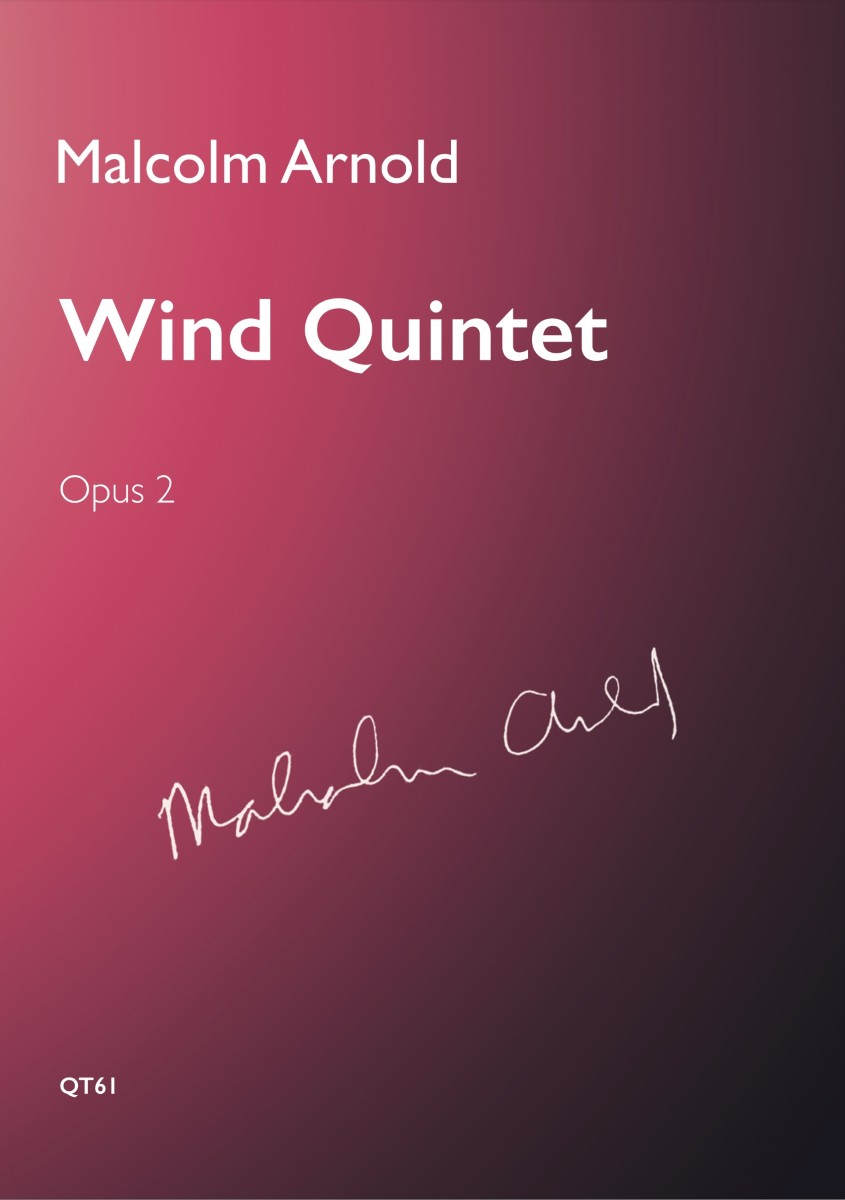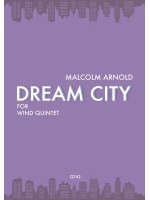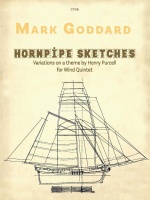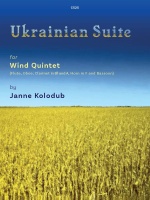Your basket is currently empty!
Wind Quintet

Description
About Malcolm Arnold’s Wind Quintet
This is an important and significant work, written in London in 1942 and now published for the first …time – 60 years later! The first movement is tuneful and full of those surprises Malcolm loves to introduce in his music. There are no shortage of jazz inspired ideas, coloured always by that Arnold ‘edge’. The second movement is a fiendish scherzo – full of amazing cross rhythms and of immense energy. The final movement is a March and the most emotionally charged. Clearly very strongly anti-war – severe and angry dissonances, mocking fanfares, angular and brutal melodic and rhythmic shapes. An important and significant work, written in London in 1942 and now published for the first time: 60 years later! The first movement is tuneful and full of those surprises Malcolm loves to introduce in his music. There are no shortage of jazz inspired ideas, coloured always by that Arnold ‘edge’. The second movement is a fiendish scherzo – full of amazing cross rhythms and of immense energy. The final movement is a March and the most emotionally charged. Clearly very strongly anti-war – severe and angry dissonances, mocking fanfares, angular and brutal melodic and rhythmic shapes. ‘The edition is well prepared and a highly-recommended addition to the quintet repertoire.’ Music Teacher Magazine, January 2004If you have already read James Brown’s article in DRN62 on the disappearance and discovery of this quintet you can skip the rest of this paragraph.
This piece is not the famous Three Shanties quintet, but a forerunner written in 1942, performed only once or twice – including a broadcast by a quintet from the London Philharmonic Orchestra – and promptly lost.
That story alone makes a good yarn, but the unearthing of the work some 60 years later – amongst the property of the late Stephen Walters – adds another remarkable convolution to the story.
Paul Harris, at the express wish of the composer, has made a diligent job of preparing the work for publication and the score and parts are very readable in this Queen’s Temple publication.
Paul Harris and his quintet gave the first performance, for 60 years, last November. I decided to assemble some friends, music stands, bottles of wine, etc to give the piece a test drive.
Double Reed Magazine
What a line-up for which this work was written: the quintet which included Stephen Waters on the the principal wind players in the LPO at the time at which Arnold himself was principal trumpet in the same orchestra.
It is thought found it many years later, after Stephen’s death, amongst his possessions. The three movements are in typical Arnold style with several reminiscences of the shortly to follow Sea shanties.
AWT
Our Price £25.46




